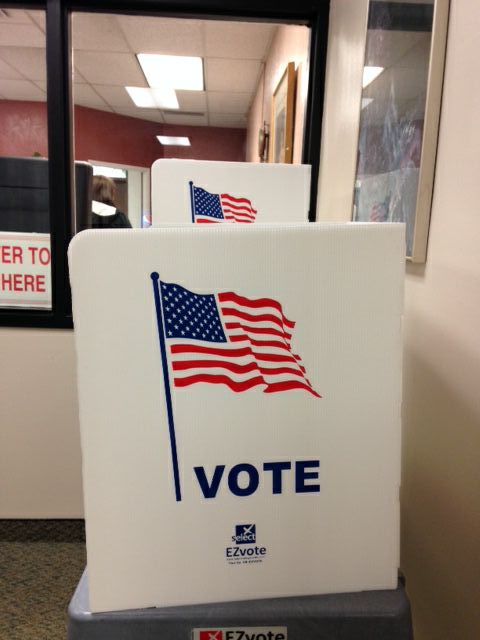States Across the U.S. Pass Restrictive Voting Laws
New restrictive voting laws are being put in place to prevent voter fraud. Texas A&M University professors say these laws are more complex than previously believed.
Tiarra Drisker ‘25

“When people are mad they turn out to vote. So we have seen occasions where voter turnout has increased despite efforts to make it more difficult,” Goidel said. “In a high intensity election with motivated voters and strong mobilization efforts, the laws might not matter. They will absolutely matter in less intense elections.”
Democrats in the Texas House of Representatives left the state for Washington, D.C. on July 12 in response to proposed Republican-led voting restrictions. This was a strategic move to block Republicans having the minimum number of members needed to make the proceedings of a meeting valid and the only option to successfully block restrictive voting laws.
America has been very progressive in terms of voting rights acts to combat discrimination and ensure equality in modern history, but new restrictive voting laws may or may not continue this pattern of progress.
Seventeen states have already enacted laws limiting ballot access. Fourteen states have enacted laws that give more control to partisan officials in terms of election oversight, which could allow politicians to overturn election results.
“Supporters of the legislation are disingenuous when they say they aren’t trying to discourage voting among Democratic voting blocs,” Kirby Goidel, a professor in the Department of Communication, said. “This type of legislation intentionally discourages voting to fix a problem that doesn’t exist.”
In Georgia, a Republican-controlled commission now has the power to remove local election officials, and has already begun removing some. Arkansas has given a state board the power to take over and conduct elections in a county if the GOP-dominated legislature deems it is necessary. Arizona Republicans ceased the Democratic secretary of state’s authority over election lawsuits and granted it to the Republican attorney general.
President Joe Biden has openly condemned the efforts to limit ballot access. In his recent Philadelphia speech, Biden called the proposed laws “authoritarian and anti-American.” As a result, Biden, congressional Democrats, and various civil rights organizations have been in support of the For the People Act, a bill that would regulate various corruptive practices within voting.
The Brennan Center for Justice reported, “Across 10 titles, this historic legislation would make it easier to vote in federal elections, end congressional gerrymandering, overhaul federal campaign finance laws, increase safeguards against foreign interference, strengthen government ethics rules, and more.”
Republican officials who support these restrictive voting laws have justified the need for them by pointing to the issue of voter fraud. The Heritage Foundation Election Fraud Database, a database that is intended to highlight cases of proven fraud and the many ways in which fraud has been committed, reported 1,328 voter fraud cases since 1982, which is roughly 33 cases a year.
The Texas Tribune reported that the restrictive voting laws the Texas Legislature are presenting would moderate local voting initiatives, further limit the rules for voting by mail, reinforce access for partisan poll watchers and ban local election officials from sending out applications to request mail-in ballots.
Jonathan Coopersmith, a professor in the Department of History, said Texas adopting these restrictive voting laws will, “make the state more likely to continue Republican domination by discouraging the voting of young, urban, and minority voters – groups more likely to vote Democratic.”
The new voting laws may cause more inconvenience for voters, but the laws may actually contribute to an increase in voter turnout.
“When people are mad they turn out to vote. So we have seen occasions where voter turnout has increased despite efforts to make it more difficult,” Goidel said. “In a high intensity election with motivated voters and strong mobilization efforts, the laws might not matter. They will absolutely matter in less intense elections.”
